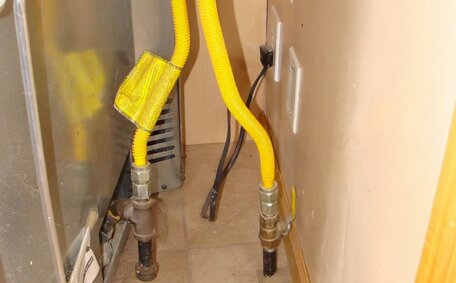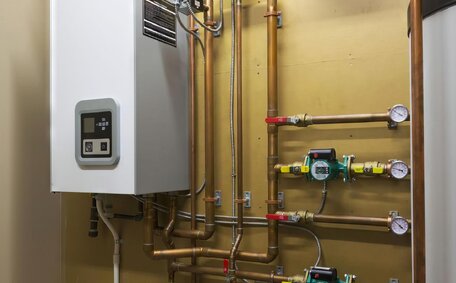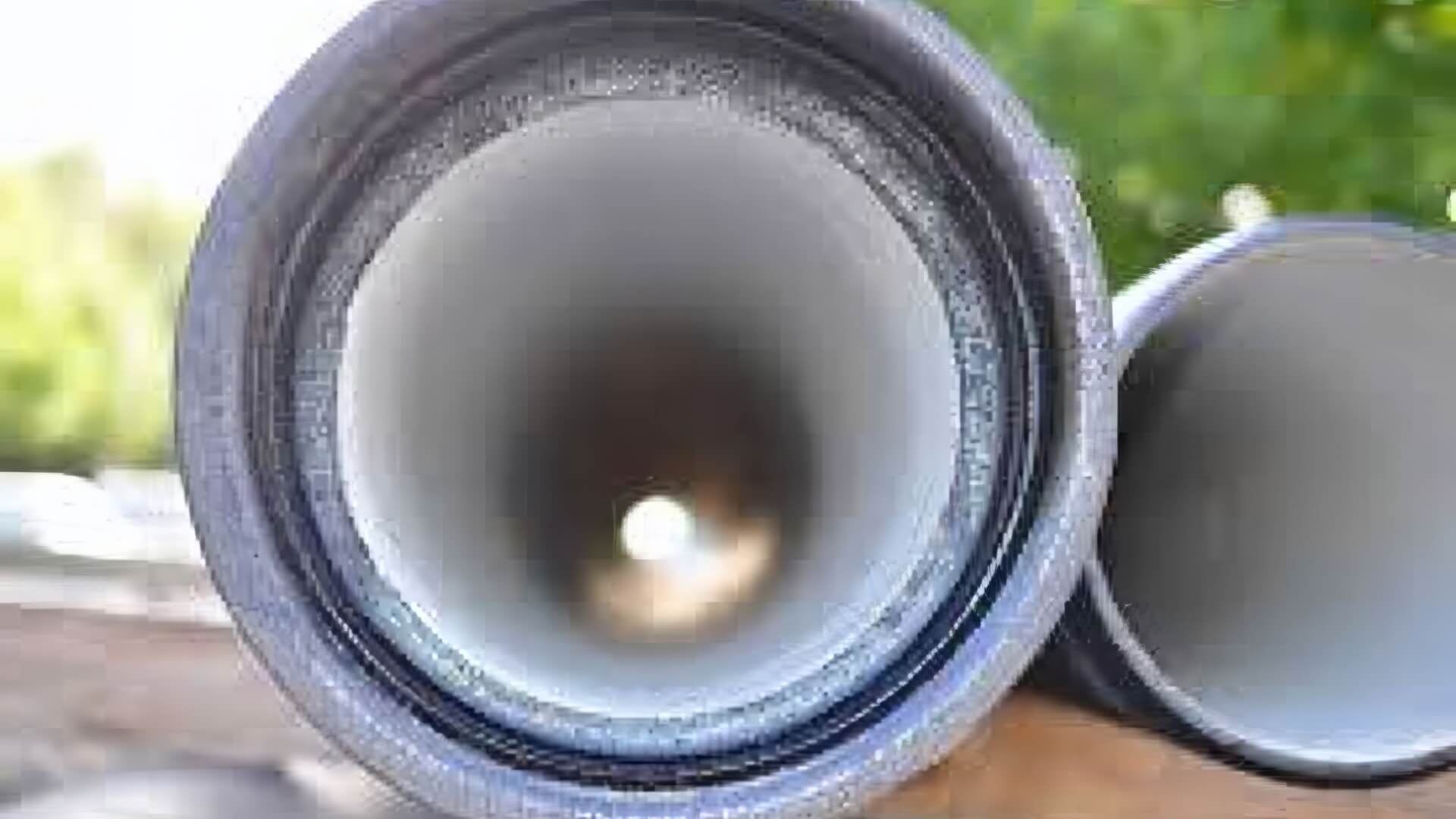
Keep Updated on Gas Appliance Recalls
Consumers should maintain awareness of current gas appliance recalls and safety alerts to prevent injuries. Check recall lists regularly to protect your home and family.
Read MoreHard water contains high levels of dissolved calcium and minerals, leading to numerous problems within your household. Water with more than 180 mg/L of calcium and magnesium is deemed very hard, posing risks to plumbing and heating systems.
When hard water is heated in hot water systems and appliances, the minerals can build up and form solid limescale on heat transfer surfaces. Scale buildup acts as a thermal barrier, making appliances work harder to heat water, leading to increased energy costs.
Mineral deposits like limescale can insulate heating elements, reducing efficiency and restricting water flow over time. Mineral accumulation from hard water can lead to early failure of heating elements and pinhole leaks in pipes and tanks, illustrating the long-term damage to plumbing systems.
Understanding how hard water impacts tank-style water heaters is crucial, as scale can affect the bottom heating elements and tank interior. In tankless water heater systems, the heat exchanger is influenced by what occurs inside the tank. By addressing hard water issues through water filters, equipment flushes, water softening treatment, and replacements, homeowners can avoid the costly damage that affects your appliances’ lifespan.
Understanding the role of calcium and magnesium is critical because they form scale on heating elements and tank interiors upon heating. A thin limescale layer of just 1 mm between heating elements and water can increase your water heater’s energy use by 8-12%.
As scale accumulates over the years, it hinders heat transfer efficiency and inflates your utility costs, since hard water affects your heating source and the water deployed for use.
This strain causes your heater to work harder to maintain temperature, leading to higher energy bills. Hard water can gradually restrict water flow in pipes and increase the risk of component failure.
In electric storage tank water heaters, hard water contributes to scale formation on the bottom heating elements and tank walls. As deposits in the water tank get denser, both heat and water struggle to flow properly, prompting elements to run hotter, for longer, and wear out more swiftly while delivering a diminished amount of hot water.
Installing a water softener system can keep hard water your tank battles from accumulating, alleviating its effects on your home system, transforming it into soft water and maintaining operating efficiency.
Multiple indicators may point to hard water as the cause of damage within your hot water system:
These signs indicate possible damage to your plumbing and heating systems from hard water, with a risk of early failures if issues are not addressed. By installing water filtration or softening systems, regularly flushing heat exchangers, and replacing affected components, your home can help mitigate these issues.
Homeowners should undertake crucial preventative maintenance tasks regularly to shield your boiler and water heaters from hard water damage and maintain efficient, lengthy lifespans for their appliances:
Following best practices in care and maintenance is essential to ensure safe and efficient water heater operation for years. Prevent scale and sediment buildup from accumulating to safeguard the lifespan your appliances have and to avoid efficiency losses and potential leaks over time.
There are a few key signs that indicate when a water heater needs maintenance in hard water areas. If you notice declining hot water pressure, cloudy tap water, noisy heating element operation or higher energy bills, it’s time to flush mineral deposits. It’s beneficial to perform a maintenance flush at least once a year for those living in a hard water area, especially for electric tank heaters.
Significant buildup calls for more than flushing; without addressing the root cause, scale can reemerge, threatening to damage vital components of your water heater. Replacing heating elements, anodes and other components can help reduce issues, but the appliance may continue having problems. Should performance wane despite regular flushing, it could indicate excessive coating on the heat exchanger and internal surfaces.
In hard water areas, storage tank heaters generally last 6-8 years, in contrast to tankless units enduring 10-15 years. Have your system checked when issues linger post-flush; ask yourself, 'do I need a replacement?' because it may be the solution. Do I need assistance with water heater servicing, repairs or installation of new models? Contact our team at Werrington Plumbing on 1300 349 338.
Water softeners or filtration systems are an effective remedy for hard water issues in the home. These systems employ ion exchange to remove calcium, magnesium, and other minerals, thereby mitigating the effects of hard water.
Softener beads capture hardness minerals and replace them with sodium or potassium ions, which remain dissolved.
Water softeners curtail scale buildup that can impair hot water heaters and piping. They transform the chemical structure of the water to inhibit scale formation when heated. This approach safeguards appliances, mitigating the impact hard water has and protecting them from wear that could shorten their journey into your home.
Reverse osmosis systems, as other filtration options, enhance water quality and benefit your skin hair, while also reducing water hardness levels. While more expensive, they eliminate up to 99% of minerals and provide the highest quality water for consumption and appliances.
By treating incoming hard water, these systems extensively protect your plumbing and extend appliance lifespans. Hot water heaters, washing machines, dishwashers and other appliances will all benefit. With protections in place, your home can reduce scale interference with heating elements and mechanical components, achieving optimal efficiency in hard water areas.
We recommend homeowners in hard water regions install water softening or filtration systems for preventative care. Contact our team at Werrington Plumbing on 1300 349 338 to learn more about hard water and the best treatment solutions for your home and appliances.
Available water test kits assist homeowners in identifying the level of hardness present in your water supply. This is an important first step to diagnose issues related to scale buildup and efficiency losses from hard water.
Home test kits for water hardness typically employ liquid titration to gauge calcium and magnesium levels. The process involves adding a reagent dropwise to a water sample until a colour change indicates the hardness level.
Kits include detailed instructions and vials with pre-measured ranges showing the hardness in grains per gallon gpg, parts per million (ppm) or milligrammes per litre (mg/L).
Annual water testing provides a valuable benchmark for tracking hardness changes over time.
An annual increase in water hardness levels should spur homeowners to consider water softening or other preventative measures to foil appliance damage. Contact our team at Werrington Plumbing on 1300 349 338 if you need assistance testing your water or addressing hardness issues.
Hard water can result in costly damage and premature replacement of water-using appliances over time. Hot water systems and tankless water heaters are particularly vulnerable, as hard water does affect their average lifespan, which can be reduced from 15 to as little as 6-8 years in hard water regions.
As scale buildup water deposits accumulate, they severely impede heat transfer and water flow, forcing appliances to exert more effort while delivering less hot water. Heating elements and internal components tend to wear out faster and the heater can sustain pinhole leaks or tank corrosion due to hard water.
A standard 190-litre electric water heater costs approximately $800 to buy and install. Replacing these after 6 years rather than the typical 12 can mean spending an extra $600 over a decade. Tankless water heaters representing a $2000+ investment may need replacement after 8 years.
Accounting for plumbers’ service charges and the reduced lifespan of water-fed appliances like washing machines and dishwashers, the financial toll of hard water damage can escalate into thousands.
Preventative investments, ranging from $1000-1500 in water softeners and filtration systems, can eliminate harmful minerals and shield your plumbing and devices. Moreover, yearly system flushing and part replacements can forestall substantial damage and corresponding costs.
Let our team at Werrington Plumbing provide recommendations on the most suitable water treatment solutions for prolonging the lifespans of your home’s appliances. Contact us on 1300 349 338 to learn more.
Consumers should maintain awareness of current gas appliance recalls and safety alerts to prevent injuries. Check recall lists regularly to protect your home and family.
Read MoreHard water leaves mineral deposits in hot water heaters and systems, causing corrosion and limescale buildup. This reduces efficiency and leads to higher energy bills and repair costs over time. Installing a water softener protects hot water appliances by removing the minerals that cause scale.
Read MoreYes, pipes can be relined more than once if they become damaged again. Our pipe relining service uses epoxy resin to coat the inside of your existing pipes, repairing cracks and damage for over 50 years. As experts, we’ll have your pipes relined in just one day with no digging required.
Read MoreWerrington, 2747 NSW
We will call back as soon as possible.




